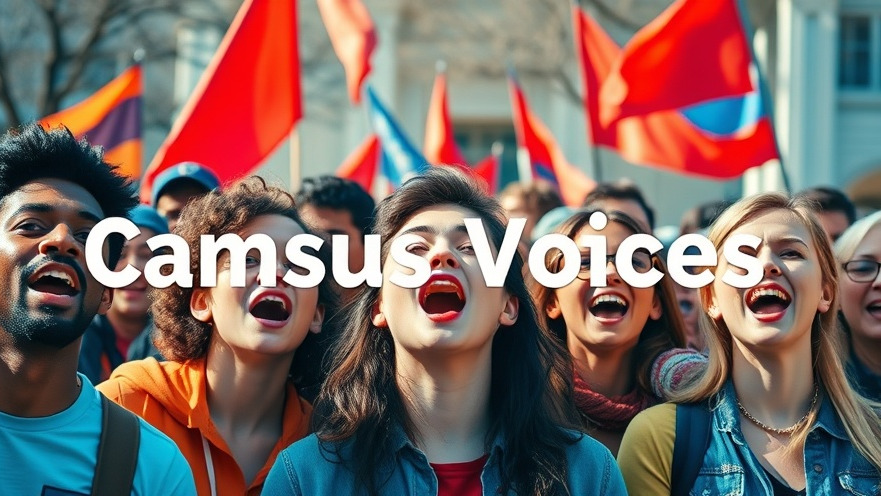
Unraveling the Recent Legislative Focus on Free Speech
In recent months, the discussion surrounding free speech on college campuses has gained substantial attention, especially in light of disturbing incidents, including violence against speakers. As Texas legislative committees prepare to study the implications of these events, questions arise about the balance between freedom of expression and safety. These dialogues are critical as they shape the educational landscape, where diverse opinions foster learning.
Historic Context of Free Speech on Campuses
Free speech at educational institutions has been a hot topic for decades. The push for rights within the academic realm gained traction during the civil rights movements, solidifying the understanding that diverse viewpoints should have a platform. In recent years, however, the rise in campus confrontations has put this fundamental principle under scrutiny. Understanding the historical context is essential for evaluating current legislative efforts and determining the future of free speech amidst heightened awareness of public safety.
Current Events: Why This Matters Now
The recent slaying of speaker Charlie Kirk, a notable conservative figure, serves as a stark reminder of the real dangers that can arise from heated political discourse on campuses. This tragic event has prompted legislators to take action, leading to the proposal of studying the dynamics between campus safety measures and the free expression of ideas. The reckoning is not just a local matter; it reflects broader societal tensions regarding political discussions nationwide.
Counterarguments: The Other Side of Free Speech
While many advocate for unrestricted speech, there are counterarguments emphasizing the necessity of regulating certain types of speech, particularly when it leads to violence or harassment. Opponents of absolute free speech argue that institutions must ensure a safe learning environment for all students, which may necessitate certain restrictions. This perspective urges stakeholders to consider the implications of their policies on marginalized groups, who might feel threatened in an environment where aggressive rhetoric goes unchecked.
Future Insights: What to Expect from Legislative Actions
As Texas takes steps to study free speech on campuses, we can anticipate a multifaceted approach to the issue. Lawmakers may propose new regulations that aim to protect both free expression and campus safety. Such measures could pave the way for clearer guidelines on what constitutes acceptable speech, ultimately impacting the educational climate and shaping the policies of institutions across the state. Observers should also pay attention to how these developments could influence similar discussions in other states.
Practical Insights: Navigating Free Speech Rights
For students, educators, and policymakers, understanding free speech rights is crucial. Engaging in respectful dialogue, creating safe spaces for dissenting opinions, and advocating for inclusive policies are essential actions everyone can take. Educational institutions may benefit from workshops and training on managing free speech issues, which foster a culture of respect and understanding among diverse campus populations.
Final Thoughts
The debate about free speech on college campuses is a significant narrative in Texas and beyond, intertwining safety with foundational democratic principles. As the Texas legislature prepares to delve into these questions, it is vital for the community to engage thoughtfully with these issues, ensuring that any developments foster an environment of safe and open dialogue.
 Add Element
Add Element  Add Row
Add Row 



Write A Comment